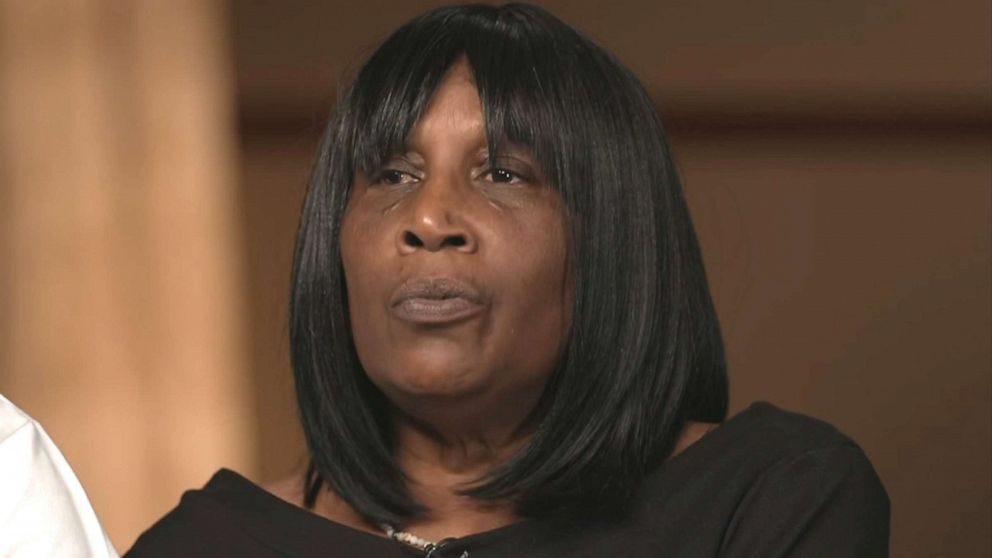I’ve been a journalist for decades, but it took me more than a week to watch the video of Memphis police officers acting like a pack of coyotes and attacking Tyre Nichols after a traffic stop.
Call me a coward, but I dreaded the sight. I turned off the television the night city officials distributed the video to the media, and kept it off. I was repulsed by every channel’s breathless, all-day, too-frequent promotions about the video’s impending release the evening of Jan. 27.
Yes, the video was news. Yes, American citizens, particularly white Americans, have an obligation to witness the all-too-common crime of police brutality. But that day, it felt voyeuristic, raw, and close to home -- Tyre Nichols was just a year older than my own son.
Later, I listened to the mother’s grief of RowVaughn Wells, whose dignity and grace seem to come from some deep and near-unimaginable reserve of strength. She told “The View:”
"Knowing that he was calling my name, and I was not there to protect him, it just hurts me to my core. . . . The only thing that keeps me going is that I felt that my son was here on an assignment, he finished his assignment and God took him home. I guess Ty had to be sacrificed for the greater good. I’m going to hold onto that until I get justice for my son.”
The greater good. Those are words we don’t hear very often.
I hope that she is right, that this young man’s awful death will change our culture, make it more compassionate, make such crimes less likely in a country where news of shootings and other violence has become so much white noise.
Because of the pervasive violence in American life, it is hard to feel optimistic. Most people suggest that police must have more and better training. Yet it seems unlikely that training would have made up for a lack of human decency.
Nor is the answer necessarily hiring more officers of color. Black officers are the ones who did the kicking and punching of a Black young man, and the Memphis police department is 58 percent Black.
In the initial fallout, at least, we have been spared the typical government Feelgood Elixir of a blue-ribbon commission. We’ve had a century of those and they have made us no safer.
For more than 100 years, commissions and government probes have conducted in-depth reports after instances of police brutality. It occurred after incidents led to civil unrest in Chicago in 1921, New York in 1935, Detroit in 1943, Los Angeles in 1965, Newark and then Detroit again in July of 1967. The 1967 riots caused President Lyndon B. Johnson to appoint the Kerner Commission to look into causes, which the president blamed on outside Communist agitators.
The Kerner Commission didn’t go along with that absurdity. It horrified both Johnson and most of white America by saying the riots were caused by institutionalized racism and the blame rested with white people, not black people. “White society is deeply implicated in the ghetto. White institutions created it, white institutions maintain it, and white society condones it,” the report said.
The commission report and the backlash against it helped fuel Richard Nixon’s successful “law and order” campaign for the White House. In many ways, the demands for law and order have never left us. After the terrorist attacks of 9/11, the Department of Defense’s 1033 program went into high gear. This program, begun in 1990, distributes surplus military equipment to many of the 18,000 different law enforcement entities in the United States. Until 2001, the effort had turned over just $27 million worth of equipment to police departments. In the years since, the Pentagon has given police $1.6 billion worth of heavy weapons, riot shields, tear gas, surveillance equipment and mine-resistant vehicles, all accounted for. But other, less transparent federal programs may have given at least $5 billion more, according to the Law Enforcement Support Office in the Department of Defense. And at least one study links militarizing police departments with increased police abuse of civilians.
The George Floyd Policing Act, which has stalled in Congress, would limit the transfer of military equipment to police departments, create a national database for police misconduct, make officers more accountable and other measures. It’s become immersed in partisan mudslinging, which doesn’t help anyone. You aren’t anti-cop to deplore what happened in Memphis a month ago, or in Louisville to Breonna Taylor in March of 2020, or in Minneapolis to Floyd two months later.
If we are really concerned about the “greater good” that Tyre Nichols’ mom talked about, a bill in Congress may be the start, but it won’t bring about the change we need. The greater good means we have to look at America’s violent culture and change that. It is a daunting task, but we have changed already in many ways.
After all, we are the country where lynching was once so common that the total number was published annually in the World Almanac, much like the snowfall in Duluth or the number of cars sold. Racial incidents of torture were once put on postcards. Segregation was widely accepted once. It has long been seen as a disgrace. Gays used to be reviled; now same-sex marriage is accepted and even celebrated. Women were once relegated to just a few professions in public life. No longer. These things are all many years behind us. Yet they were all part of the fabric of American life.
So perhaps the current nationwide outrage over senseless acts of police brutality is a sign of progress, even if progress is glacial. We need that righteous anger to fuel the slow movement toward the greater good, however long it takes.





Hadn't heard Tyre's mother's account on the other side of the pond. This is excellent work!
This is outstanding. Thank you for taking the time to write this piece!